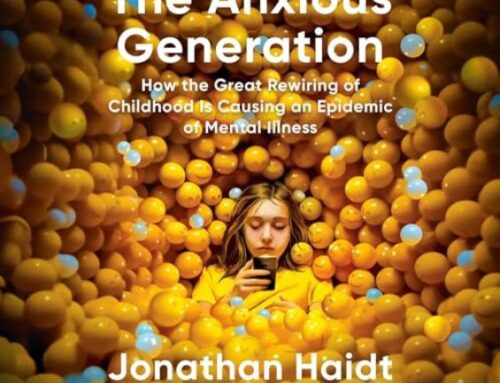It’s a truism that every generation believes that the ones immediately following it will preside over the dismantling of every social, cultural and economic virtue that they took for granted, a rite of passage for senior generations that begins roughly when they realize that they’ve slipped out of the green vale of youth. There’s no objective way of proving this imminent decline, but since popular culture began to edge out all other types of culture, anecdotal proof is never lacking for the generation that wants to claim that “après nous, le deluge.”
Lena Dunham, the star and creator of HBO’s latest hit series Girls, wrote herself a starring role in the last weeks of the U.S. presidential election with a YouTube video imploring young women to vote for Barack Obama, by comparing marking your first adult ballot for the incumbent president to losing your virginity to “a great guy … who cares about whether you get health insurance, and specifically whether you get birth control.” It helped frame the appeal of Obama for some of his supporters as an almost wholly emotional one, to be made free of any grasp of the brutal economic issues at hand. Even more worryingly, it may actually have worked.
Dunham’s show, which is just ending its second season and has been renewed by HBO for a third, is about a quartet of young women in New York City, a description that’s seen it described as Sex and the City for “millennials” – that much-maligned generation alternately known as “Generation Y” or the sired echo of the Baby Boomers. Like the earlier HBO comic series, Girls is both celebrated and condemned for pushing sexual explicitness on television; unlike Sex and the City, it’s unlikely that women, young or old, will be copying the show for style notes or making it an aspirational benchmark.
Or maybe they will – facing a future of dire job prospects and crippling student loan debt, aspiration can always go downmarket.
Dunham’s show is the story of Hannah, an aspiring writer, and her college friends Marnie and Jessa. They live from paycheque to paycheque in New York City, paying astronomical rent and enduring uniquely contemporary trials like unpaid internships as they snap at the lower rungs of the ladder into a career in the cultural industries. If it sounds dire it is – both to watch and to endure in real life, but you have to remember that this is a privileged world, almost impossible to embark upon without parental support. Just a few years out of college and still waiting for their lives to take shape, the saga of Hannah, Marnie, Jessa and their circle of friends is aptly titled, since it definitely isn’t a story about women.
Peculiarly for a generation marinated in irony, Dunham uncritically depicts Hannah and her friends as exactly the sorts of self-esteem monsters millennials have been caricatured as, constantly telling themselves and each other that they’re smart and beautiful, and that the seeming indifference of the larger world, that isn’t their friends or parents, isn’t their fault, but an injustice that will be corrected in time. Sandwiched between adults and actual children, they longingly look back at their innocent younger selves (Hannah, played by Dunham, has extensively tattooed herself with illustrations from children’s books) or suffer the fiscal, emotional and sexual whims of older people.
A note to the curious – there is a lot of sex in Girls, much of it performed on and by Dunham, though almost everyone gets to strain and groan or simply strip off over the course of the two seasons so far. Not surprising for a generation raised with unprecedented access to pornography, Dunham and the show’s producers seem unaware of how grindingly dull it is to watch people have sex, especially in a show that perpetuates that evergreen youthful misapprehension that they, unique among generations, have discovered sex like some kind of new country.
There’s an old pro-abortion joke that if men got pregnant, abortion would be a sacrament. Oddly enough, it’s liberal pro-choicers who have come to regard abortion as sacramental, and the first two episodes of the first season of Girls hinge on an abortion plotline, as Jessa returns from her latest globetrotting sojourn sure that she’s pregnant, which prompts Marnie to organize a trip to the family planning clinic for her irresponsible friend.
Like the birth control Dunham seems to think should be a federally-dispensed right, abortion is depicted as an inevitability, something the girls in Girls are certain they’ll experience (like STDs) at least once as a rite of passage, all the while insisting desperately to each other that they’ll be great mothers when the time is right. Strangely, even Dunham doesn’t follow through, and Jessa suddenly gets her period in the bathroom of a bar where she’s picked up a man while blowing off her friends at the clinic. Even for militant abortion advocates like Dunham, actually showing an abortion and its aftermath is correctly intuited as a prospect likely to damage their cause.
While I’m certain Dunham isn’t – as Hannah vaingloriously imagines herself to be – the voice of her generation, my own fading memories of my 20s and early 30s on the low rungs of the culture industry confirm that, as irritating as its protagonists can be, Girls does capture the full-throttle anxiety of being young and ambitious in the city, so it can’t be dismissed outright.
It even occasionally hit notes that resonate for older viewers, like when Dunham’s Hannah piggybacks on Jessa’s abortion by scheduling an STD test (she has one, by the way). While babbling aloud to the OB/GYN about her fear of AIDS, which might actually be a subconscious desire to get AIDS, the woman looks up from her work to sigh “you couldn’t pay me enough to be 24 again.” After enduring most of the two seasons of Girls, I wished that this observation could be appended as a coda to every episode of the show, like Porky Pig at the end of each Looney Tunes saying “that’s all, folks.”





